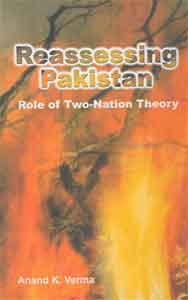The Balance Changes
The decline of the Mughal power after Aurangzeb and its final disintegration with the arrival of the British colonial rule resulted in radical changes in the balance between the religious commupities of India. The Muslim upper classes were the principal losers in status and influence. To begin with, the British depended upon the serving members of the Muslim nobility and administrative cadres but trust did not develop as the British were regarded as usurpers. Hindus; played no role in intensifying the mutual distrust. Instead they also had negative sentiments towards the British who were viewed as foreigners. The War of Independence of 1857 was a combined effort of the Hindus and Muslims. In British eyes, Muslims were the larger culprits for the Mutiny as they termed it and consequently, their attitude towards the Muslims became relatively harsher.
| Editor’s Pick |
This chain of events had the effect of sending the Muslim community into a shell. It became reluctant to accept westernised ideas and the modifications introduced in the fields of education, industry and trade. The community’s unwillingness to learn English, which was now to be the new medium of advancement in public life, shifted it by and large to the backwaters of national life. On the other hand, the Hindus and Sikhs did not display similar inhibitions and were able to progress much faster in all fields. Reform movements like the Arya Samaj and the Brahmo Samaj promoted by Raja Ram Mohan Roy helped the growth of liberalism among the Hindus in social and religious arenas, enabling them to take longer strides in their overall development. The Indian National Congress also started in the mode of a reform movement in 1885, and was seen to grow into a full-fledged national movement seeking self-determination and finally independence. The Congress was not structured on religious lines and included leaders from all communities and faiths, including the Muslims.
Focus on Muslim Community
At this point, however, the general backwardness of the Muslim community and the aloofness from the national mainstream had already become a cause for concern to the leaders of the community. The most important contribution towards the uplift of the community came from Syed Ahmed Khan (181798) who set up an institution at Aligarh in 1875, which was to become a university eventually. Syed Ahmed Khan was both a progressive as well as a devout Muslim. He wanted his community to embrace westernised ideas as well as English education so that it could march in step with other communities of the country but without losing its identity as a distinct presence in the country. To promote these objectives he favoured close links and cooperation with the British. His vision helped Aligarh grow into a major ideological and political centre of Muslim intelligentsia and its consciousness in later years.
Afghani operated on a wider canvas, with Muslims the world over in mind, particularly those in West Asia. Syed Ahmed Kahn really saw the Muslims as one Umma, which should jointly struggle against Western influences and ideologies.
Syed Ahmed Khan’s role in encouraging Muslim revivalism is of considerable significance. His real thrust lay in attempts to modernise Islamic practices and customs to conform to the currents and trends of contemporaneous times. There was no political dimension to it. In the words of one political commentator: “On the intellectual front Syed Ahmed’s mission was to emphasise the rational, secular and scientific dimensions in Islam and educate Muslims along modern lines, in order to enable them to comprehend the objective and secular correlates of the religious and spiritual dimensions and to incorporate these principles in their society and Iife.”3
Syed Ahmed Khan’s involvement with the interests of the Indian Muslim community was, thus, apolitical. He did not believe in an Islamic political movement or approve of the orthodox role of Ullemas. He supported Hindu Muslim unity but after the formation of Indian National Congress in 1885, moved away from the posture, believing that the Congress would look after only Hindu interests. Adoption of this communal approach has been interpreted by some as amounting to a first overt step towards Pakistan.4 Jawahar Lal Nehru, however, felt that Syed Ahmed Khan’s opposition to Congress grew out of his desire for British help and cooperation.5 Nehru quotes Syed Ahmed Khan “for having said that all persons in India, whatever their religion, belonged to one and the same nation.”
 Syed Ahmed Khan was not the first Muslim reformer. This role rightly belongs to Syed Jamaluddin Afghani (1839-97) who also excelled as political activist. Afghani operated on a wider canvas, with Muslims the world over in mind, particularly those in West Asia. He really saw the Muslims as one Umma, which should jointly struggle against Western influences and ideologies. Although Syed Ahmed Khan was influenced by the thoughts of Afghani, the major difference between the two lay in the framework of their respective approaches. Whereas, Afghani targeted the West far his rhetorical attacks, Syed did not wish to alienate the British and wanted to confine himself to raising the consciousness of Indian Muslims. Far this reason Afghani was quite critical of the doings of Syed Ahmed Khan.
Syed Ahmed Khan was not the first Muslim reformer. This role rightly belongs to Syed Jamaluddin Afghani (1839-97) who also excelled as political activist. Afghani operated on a wider canvas, with Muslims the world over in mind, particularly those in West Asia. He really saw the Muslims as one Umma, which should jointly struggle against Western influences and ideologies. Although Syed Ahmed Khan was influenced by the thoughts of Afghani, the major difference between the two lay in the framework of their respective approaches. Whereas, Afghani targeted the West far his rhetorical attacks, Syed did not wish to alienate the British and wanted to confine himself to raising the consciousness of Indian Muslims. Far this reason Afghani was quite critical of the doings of Syed Ahmed Khan.



